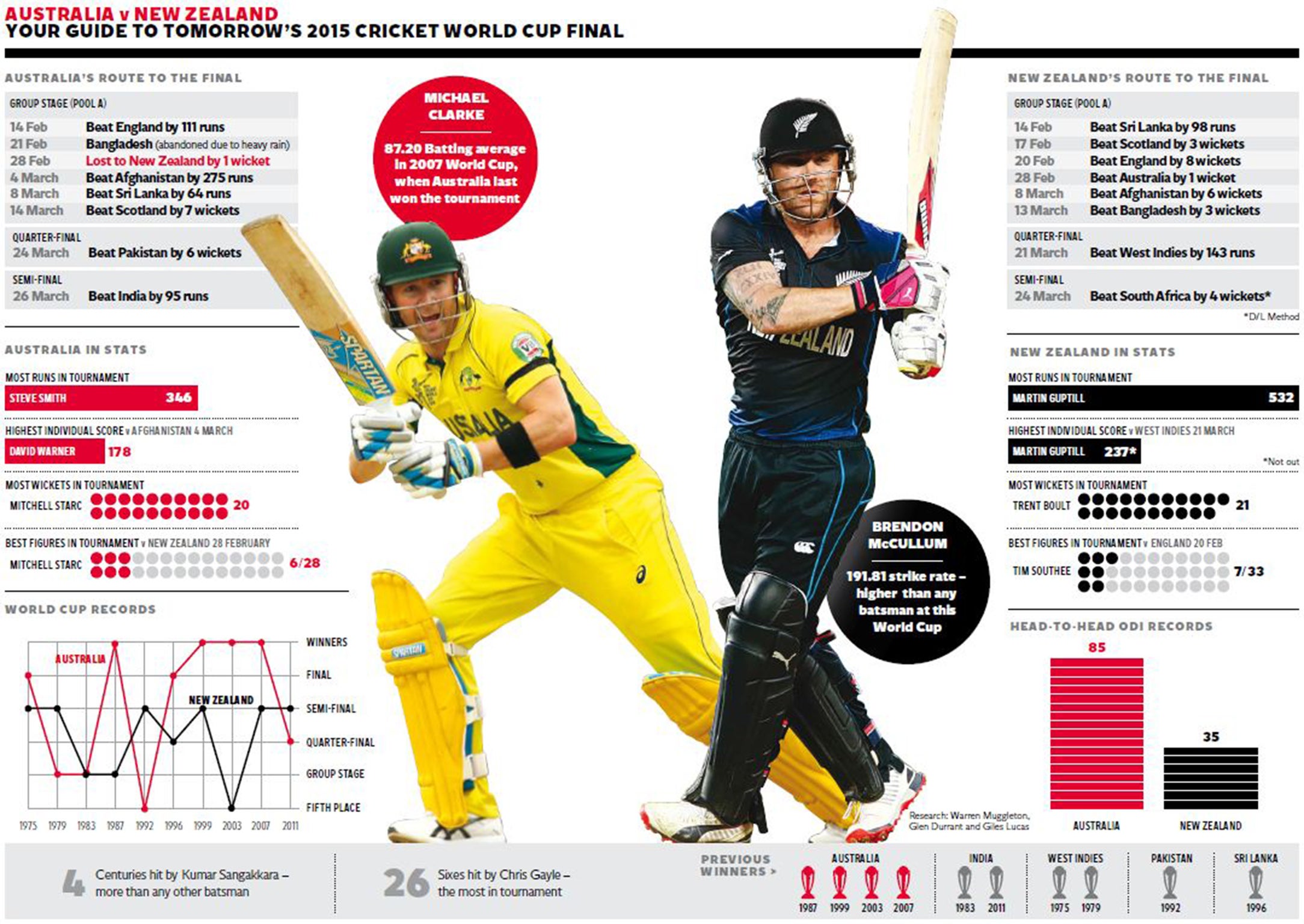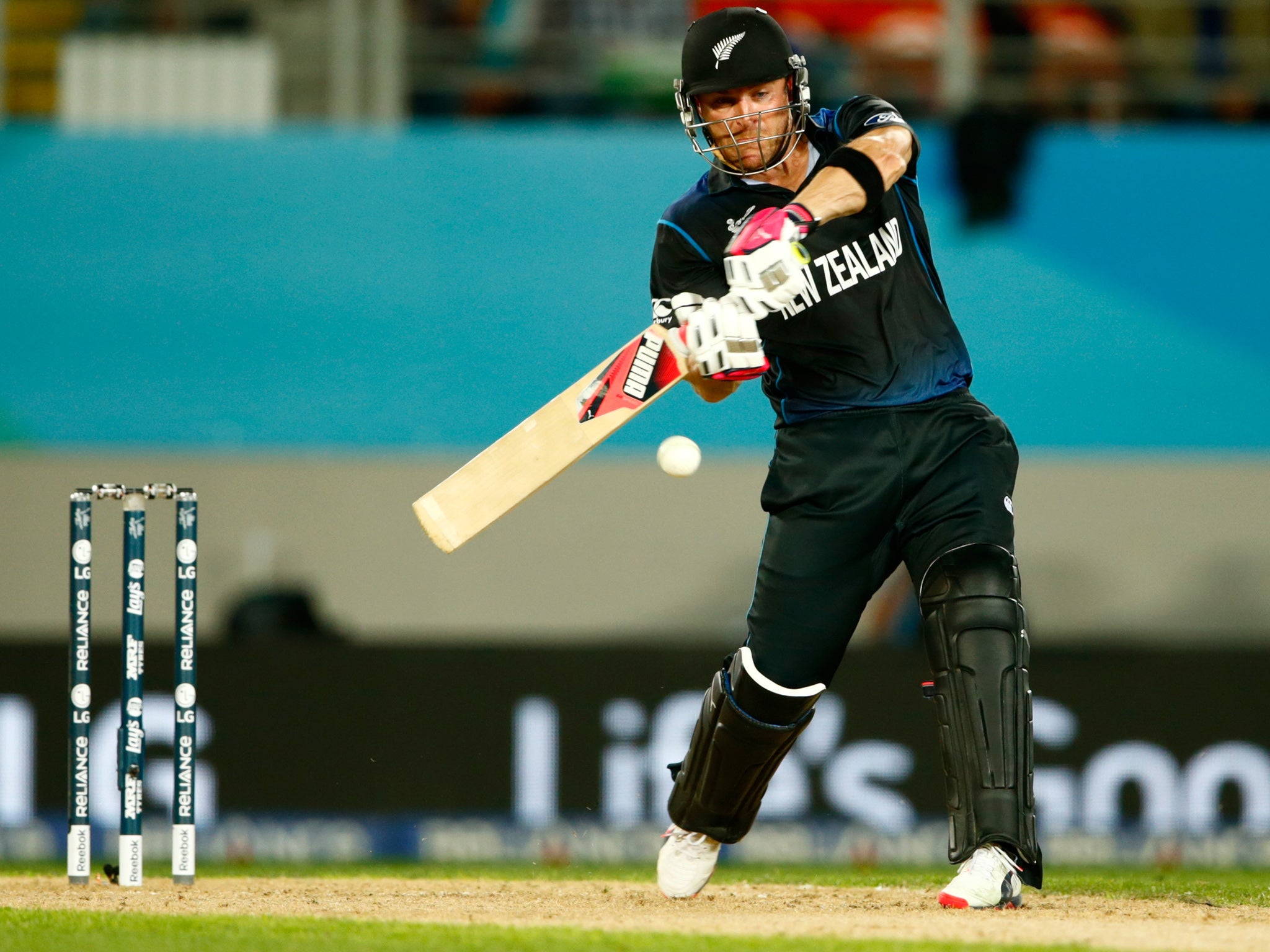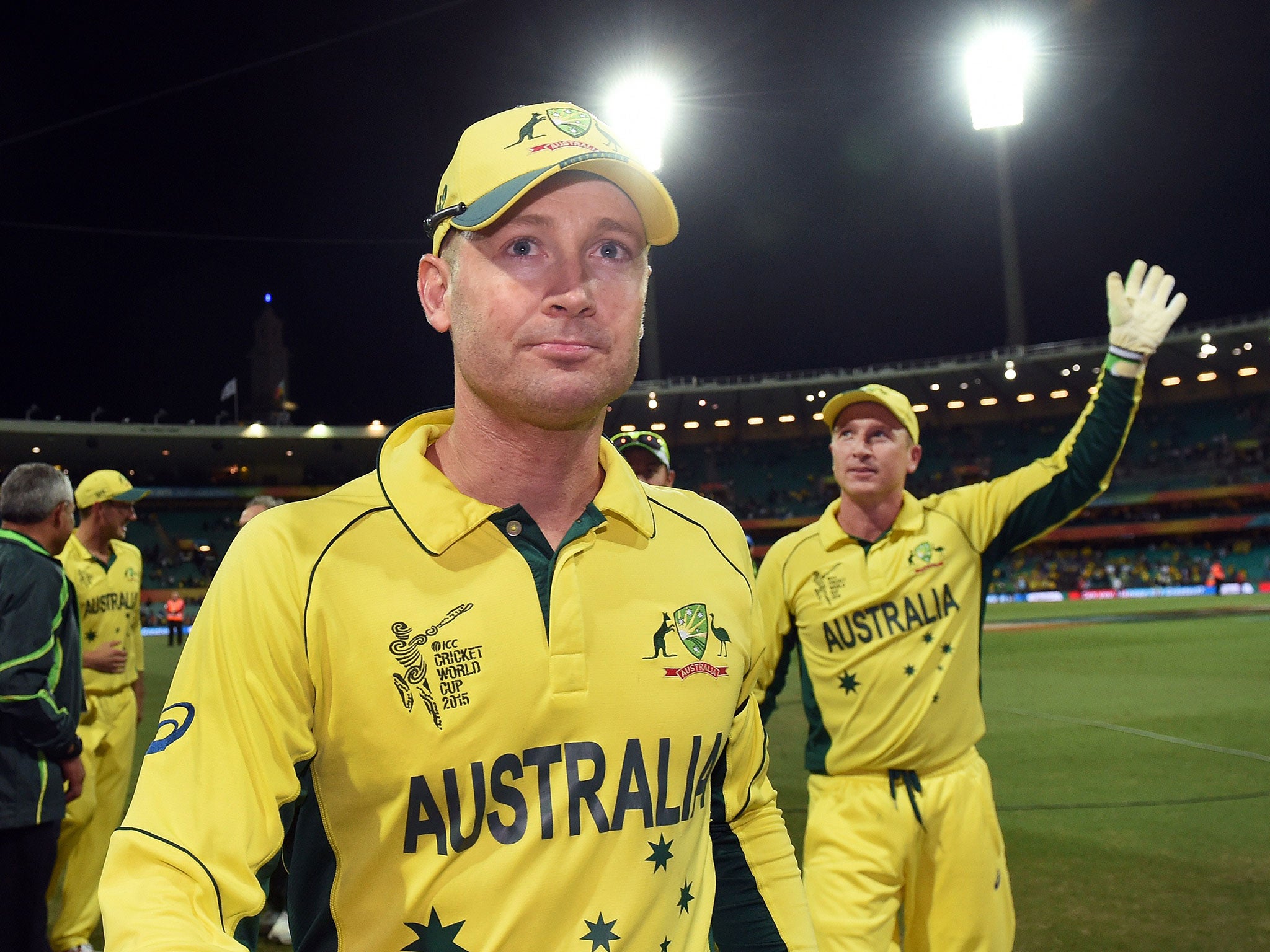New Zealand vs Australia - Cricket World Cup Final preview: Kiwis must bridge a gulf to take world crown
... and everyone except Australia is hoping they can do it

Your support helps us to tell the story
From reproductive rights to climate change to Big Tech, The Independent is on the ground when the story is developing. Whether it's investigating the financials of Elon Musk's pro-Trump PAC or producing our latest documentary, 'The A Word', which shines a light on the American women fighting for reproductive rights, we know how important it is to parse out the facts from the messaging.
At such a critical moment in US history, we need reporters on the ground. Your donation allows us to keep sending journalists to speak to both sides of the story.
The Independent is trusted by Americans across the entire political spectrum. And unlike many other quality news outlets, we choose not to lock Americans out of our reporting and analysis with paywalls. We believe quality journalism should be available to everyone, paid for by those who can afford it.
Your support makes all the difference.There is a gap wider than the Tasman Sea between the cricket of Australia and New Zealand. In many ways it might as well be a different game.
In Australia, it is still paraded as the national sport, though that may be more in hope than conviction, and after untold years of success they have come to expect to win. They work harder and longer to achieve that aim. They are driven. Sometimes it is possible to think that somewhere along the way they forgot to enjoy it.
In New Zealand, it is still a pleasant diversion between rugby seasons. They are tough, they usually punch above their weight but they have come to anticipate not winning. Their play in the past six weeks has been continually marked by their easy determination that it is there to be enjoyed.
The difference, in essence, may be defined by the fact that before this tournament Australia had never lost any of their six semi-finals, New Zealand had never won any of their six. Australia have maintained their record, New Zealand have broken their sequence, with the upshot that tomorrow the countries meet in the 11th World Cup final.

Australia will begin as favourites to become world one-day champions for the fifth time, the fourth in the last five times of asking. Not hot favourites but warm enough to suggest it would be an upset if it went the other way.
New Zealand, who have won eight successive matches, will have most of the rest of the world on their side, except in the stadium. This is not because of any particular antipathy towards Australia – though there is an undoubted feeling that they have had their share of the glittering prizes – more an affinity for the smaller potatoes.
Both sides have produced a fashion of playing exactly befitting its time throughout this splendid tournament; both have been relentless. For Australia, the match is the culmination of a season which was blighted shortly after it began by the death of Phillip Hughes, who had been in the team as recently as last September.
That tragedy has overshadowed everything that has been done since here in the name of cricket. The Australia captain, Michael Clarke, one of life’s more misunderstood individuals in that he so obviously has fathomless depths, grew in stature because of the nobly dignified way he handled himself then. During the tournament, Hughes’ name has not been mentioned, or not overtly, but there is an underlying feeling that the team are doing all this in his memory.
Clarke has overcome serious injury to arrive at this point. The surgery to cure his troublesome hamstring seems to have been successful but there were genuine fears that his career was in jeopardy. But he is also beset by the burgeoning opinion that as a one-day batsman in 2015 he is not truly worth his place in the team and that his relationship with the coach, Darren Lehmann, is an arranged marriage, rather than one made in heaven. No one imagines that either was down on one knee at any point pleading eternal devotion.
At the press briefing following the step-by-step dismantling of India in Sydney the other night, the only time a relaxed Clarke bridled was when he was asked the question. He said that he thought his record was pretty good against anybody.

Since suffering defeat by one wicket to New Zealand in a compelling pool match, Australia have been more driven than ever. They have bristled; their fast bowlers, especially the two Mitchells, Johnson and Starc, have been constantly on the batsmen’s cases and in their faces. Clarke’s team mean business, though the fragility of their opening partnership throughout the competition (a best of 57, four times under 20) will be something that their opponents’ equally superb opening bowlers will be eager to exploit.
New Zealand, led by Brendon McCullum, have unquestionably been easier to admire. McCullum has regularly made a point of saying how this is the best time of the players’ lives. And he has stayed utterly faithful to the theme of attacking cricket. It is one thing to talk about it (as others closer to home do, for instance), it is quite another to put it into action.
McCullum has done so every match, never taking a backward step, and his men have followed him, simply knowing that they are guaranteed his support. It is the mark of a true leader.
Thinking back a couple of years, it is extraordinary what McCullum and the coach, Mike Hesson, have achieved. Hesson, not close to being an international player, was a surprising choice as New Zealand’s coach in 2012.
Fairly early in the job, he was instrumental in the removal from the captaincy of Ross Taylor, a popular figure and the side’s gun batsman. Hesson wanted as captain his old chum from Otago, McCullum, whose place in the team was guaranteed. It was clumsily handled at best and Hesson, of whom few had heard, was widely derided.
But Hesson knew what he was doing; he has an eye for a cricketer and the style he wanted those cricketers to play. He is a slight man with a slightly wary countenance which belies an affable nature. He stood firm. Together he and McCullum have built towards this tournament, alighting on players and making sure that they fitted in the dressing room.
There is the suspicion that neither is on Taylor’s Christmas card list and it may or may not be entirely coincidental that Taylor has yet to show any of his more stupendous form in this tournament. Deep down it still rankles.
But the team have united and the nation is behind them in a way that is touching. Cricket is not rugby in New Zealand, it is not a religion with all the connotations, healthy and unhealthy, that brings, but it has touched the wider community in a way that has eluded Australia.
Some time, New Zealand’s irrepressibly audacious approach will provoke a rapid collapse. That occasion does not deserve to be tomorrow in the final.
The stadium itself, the giant cavern known as the G, may be the 12th member of the opposition, the only place Australia are guaranteed overwhelming support. Five of New Zealand’s team have never played there, three have played there once, and none for six years, in which time it has changed but seems bigger, not smaller. When M S Dhoni, India’s captain, was asked about the final he said: “One of the biggest things New Zealand will have to deal with is the size of the field.”
But it is not as big as the Ditch, which is what they call the Tasman Sea hereabouts. To win, New Zealand must bridge both gaps.
--
Pitch battles three key final confrontations
Michael Clarke v Brendon McCullum
These are two eternally busy but greatly different captains. Clarke’s features are often strained during an innings as he works out constantly what he should do next.
As he searched urgently for a wicket against India the other day, which Australia desperately needed, he switched the ends of two of his bowlers and was swiftly rewarded. Clarke will harry batsmen and does not discourage his bowlers from having a word.
If his natural instinct is to attack, that almost pales by comparison with the manner in which McCullum deliberately applies himself. These are not gimmicks but carefully devised, forceful options designed to instil doubt and prompt error.
McCullum is a brave captain. Mistakes are not exactly condoned but they are permitted because that is what boldness is about.
Trent Boult v Mitchell Starc
Throughout the tournament, Boult has been sublime, a masterful exponent of accurate swing bowling. One of his main jobs will be to be undermine Australia’s innings before it can truly begin.
Starc has perhaps been the bowler of the competition and his spell against the Kiwis in the pool match, when he bowled fast, ripsnorting yorkers to order, will endure in the memory. He is occasionally prone to waywardness but his speed can get him out of trouble in one-day cricket. Like Boult, he will be summoned if his side requires a wicket urgently.
Steve Smith v Kane Williamson
These are the batting stars of their respective teams. Smith scored a seamless semi-final hundred. Williamson has produced no better than his 57 in the opening match but his nerveless, match-winning six over long-on in the tense pool match between the teams embodied what he can do.
One or both could easily play the innings that ensures their team stays in this final. Williamson is the classier looking, Smith the one who defies convention.
At the crease, Williamson sets himself perfectly, unflappable and always seeming to have time on his side. Smith is a man always dashing for a train and in his case catching it.
Join our commenting forum
Join thought-provoking conversations, follow other Independent readers and see their replies
Comments